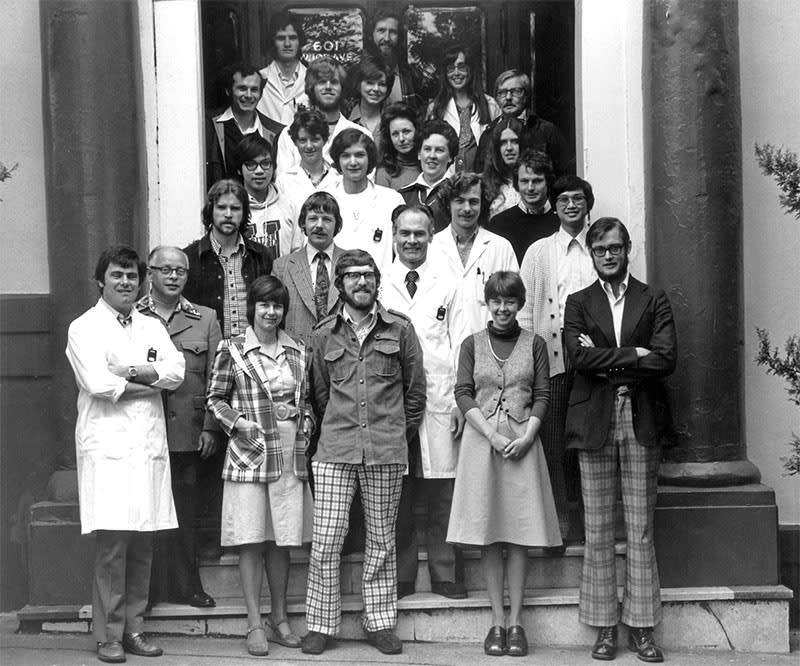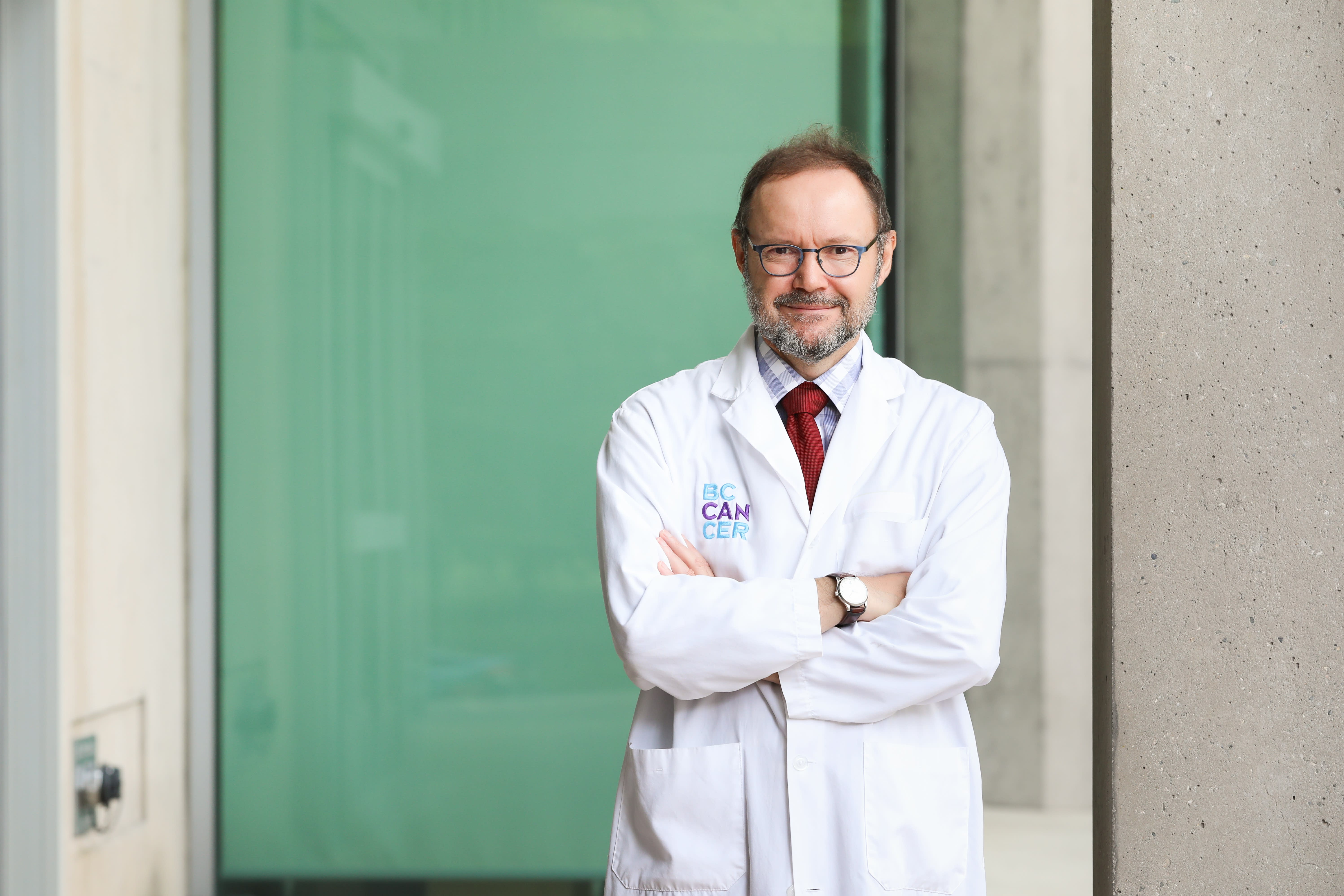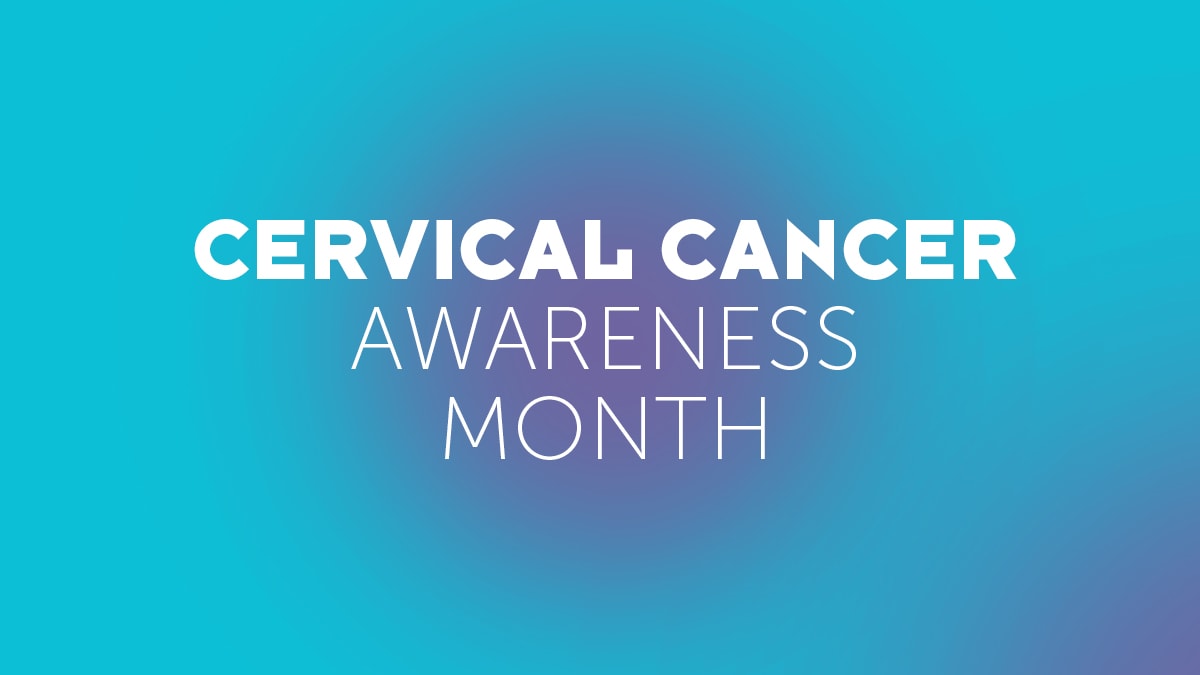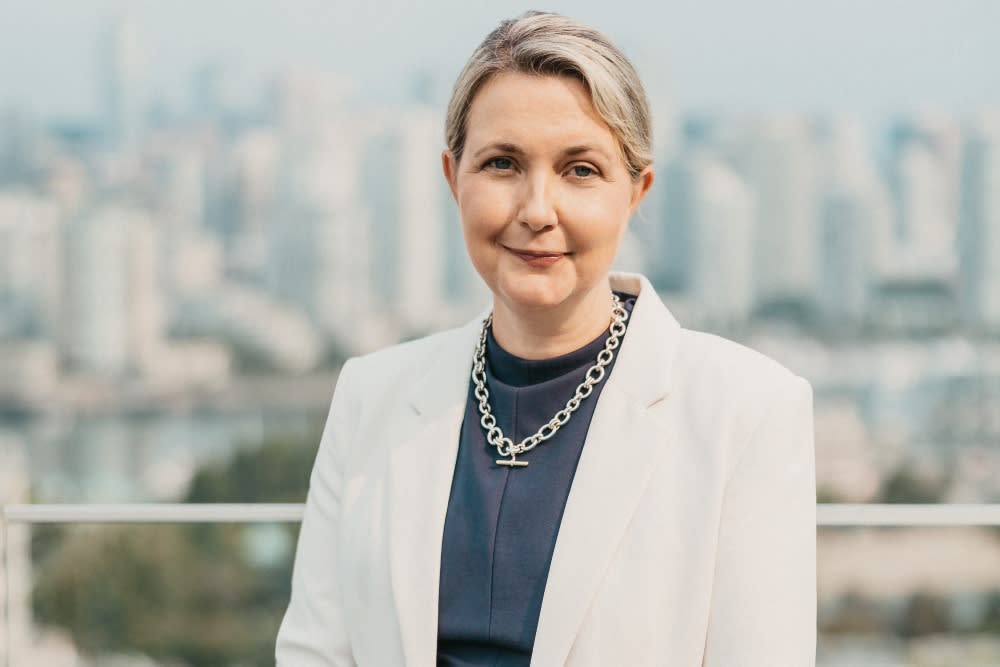90 Years of Discovery and Hope in B.C.: Dr. Kim Chi on a Quarter Century of Care
April 1, 2025
Found in BC Cancer - Vancouver, General, Prostate Cancer
From a fellowship in the late ’90s to a renowned medical oncologist, professor and senior research scientist, Executive Vice President and Chief Medical Officer Dr. Kim Chi reflects on more than 25 years at BC Cancer.

What has kept you in B.C. for over two decades?
BC Cancer is unique, in Canada and in the world, due to our provincial structure which enables collaboration and consistency in care across B.C. As a researcher, this is invaluable as it offers a much wider, population-level of data, from diverse demographics and regions that reflect a range of cancer types, treatment responses and patient outcomes, to help develop more personalized treatments.
And, of course, our work is backed by a donor community like no other. Without BC Cancer Foundation support, we would not be the world-leading cancer organization we are today.
As a leader in prostate cancer research — involved in almost every major drug to treat the disease over the past 20 years — what BC Cancer-led innovations are providing new hope?
We’ve entered an exciting era of precision medicine over the past decade — which has doubled life expectancy for prostate cancer patients in B.C. Donor-supported advancements include:
• Prostate-Specific Membrane Antigen (PSMA)-PET, a new imaging technology that is detecting cancer spread earlier than traditional scans.
• Genomic analysis — to identify mutations driving cancer growth to guide improved treatment — is now standard for metastatic prostate cancer.
• A B.C.-pioneered blood test analyzing circulating tumour DNA (ctDNA) is providing unprecedented insight into a patient’s cancer and an alternative to invasive tissue biopsies.
• High-dose, precision radiotherapy is reducing radiation sessions from up to eight weeks of daily treatments to just three to five doses, minimizing side effects and increasing complete remission in patients with metastatic cancer.
How has donor-supported research impacted patients over your career?
Recently, I had to tell a long-time patient that we no longer had any treatment for his cancer and that he had weeks, maybe months to live. But, behind this incredibly difficult conversation is a growing success story. Twenty years ago, when I had first started in oncology, I would have had one treatment to offer him — a chemotherapy that was not very effective. His prognosis would have been grim: one year.
Instead, thanks to research he had five treatments: targeted therapy, more effective chemotherapy immunotherapy, and radioligand therapy, as well as genomic and molecular characterization of his cancer that enabled us to tailor his treatment. As a result, he had seven good years with his family.
What promising new treatments are on the horizon?
Immunotherapy — harnessing a patient’s own immune system to fight cancer — has revolutionized cancer treatment but there is much more work to be done. Founded fully through donor support, the immunotherapy research program at BC Cancer’s Deeley Research Centre (DRC) was the first in Canada to manufacture CAR T cells, white blood cells genetically engineered in the lab to identify and destroy cancer.
A clinical trial using the made-in-B.C. CAR T cells is showing complete regression in 43% of its participants — leukemia and lymphoma patients who had exhausted all other treatment options. BC Cancer experts are preparing to research the effectiveness of CAR T-cell therapy to treat some of the most challenging cancers, including ovarian and pancreatic.
Can you give an example of when you’ve seen a project go from lab to life-saving treatment?
I had a patient who benefited from a diagnostic we created right here at BC Cancer – Vancouver, supported by BC Cancer Foundation funds. Instead of a biopsy or surgery to remove tissue for evaluation, we developed a blood test that screens for genomic markers in prostate cancer patients. In this individual, the blood test identified a gene mutation that responds well to immunotherapy.
What’s incredible is this mutation only occurs in about 3% of prostate cancer patients and it’s difficult to find. Thanks to this simple blood test, however, we located it and enrolled him in an immunotherapy clinical trial. He’d already received multiple treatments including surgery, radiation and chemotherapy, and yet his cancer had spread. After immunotherapy he achieved a complete response and four years later, he is free from disease. At just 72 years old, he is now enjoying many more years with his grandson.
Cancer cases are on the rise, what keeps you going in the race to stay ahead of this disease?
We are curing more people, and more people are living longer and better with cancer than ever before. This is thanks to research and innovative new treatments — much of it led right here in B.C. While it’s a privilege to be at the helm of our provincial cancer system, I also really appreciate helping patients on an individual level where I get to see our work in action every day.

90 Years of Discovery and Hope in B.C.
Since 1935, the BC Cancer Foundation has been transforming cancer research and care, and bringing life-saving treatment closer to home for people across B.C.
Learn More

